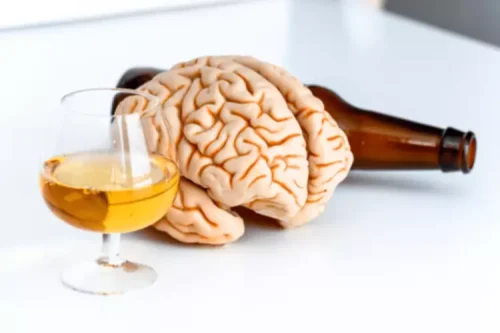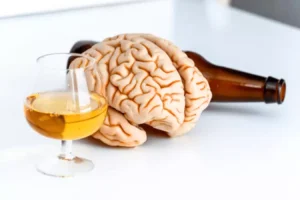
You will be asked to enter information about your health, whether or not you take any medicines, your pregnancy outcome and your child’s development. You can update your details at any time during pregnancy or afterwards. This information will help us better understand how medicines affect the health of pregnant women and their babies. Alcohol use appears to be the most harmful during the first 3 months of pregnancy; however, drinking alcohol anytime during pregnancy can be harmful. It is not safe to drink any amount of alcohol at any time during pregnancy.
Can Someone with an Alcohol Use Disorder Have a Healthy Baby?
- The chance of their baby being affected will largely depend upon the amount of alcohol consumed on each occasion and the number of drinking days (see the sections below for further details).
- Throughout pregnancy, the brain undergoes tremendous growth, and alcohol consumption at this time can severely disrupt this process, resulting in long-term brain damage.
- How clear is the medical evidence supporting strict abstinence from alcohol during pregnancy?
- As a teratogen, alcohol has the potential to cause a variety of issues in the developing fetus.
The cerebellum is one of the last structures of the brain to differentiate during development, with the majority of structures in the brain having begun development earlier. Most cellular proliferation, migration, and synaptic regulation in the cerebellum occur in the third trimester, 24 weeks after fertilization through birth. This period of intense neuronal creation, organization and connectivity is called the brain growth spurt. While the radial glia progenitor pool has already been established by this point in time, alcohol can still impact neural migration and synaptogenesis. An unfortunate reality is that during the early stages of the first trimester many women do not realize they are pregnant, and if they drink alcohol, they may unknowingly cause structural damage (skeletal and organ) to their unborn child. Alcohol consumption during pregnancy continues to be a serious problem.
Related MedlinePlus Health Topics
When she finally figured out she was pregnant, she was freaked https://ecosoberhouse.com/ out. Her doctor said, ”It happens all the time,” and told her that it was most important that she start taking care of herself immediately. She immediately got on the straight and narrow, and now has a healthy little boy.
What If I Drank Heavily In My First Trimester? What To Do.

Perhaps you enjoyed a few glasses of vino while trying to conceive and became pregnant before you expected to. Realizing that you have had alcohol while pregnant can make you feel guilty and worried for your baby’s health. Take your daily prenatal vitamin, maintain a healthy diet, avoid undercooked meats and raw or high-mercury fish, and keep your prenatal appointments — these are all wonderful things you can do to promote your baby’s health. Numerous reliable sources and studies (like the one we mentioned above) mention that alcohol use in the first trimester may increase miscarriage risk. It’s an incredibly difficult reality that miscarriages are as common as they are. And even if you do everything by the book, the highest risk of miscarriage is in the first trimester — and it often happens due to issues outside of your control (like chromosomal abnormalities).
While no amount of alcohol is safe during pregnancy, drinking small amounts before realizing you’re pregnant likely won’t cause any harm. Fetal alcohol syndrome is characterized by a slow growth rate and developmental impairments, both of which can be caused by maternal alcohol consumption. Fetal cardiac abnormalities are yet another potential outcome of maternal alcohol use. The heart is one of the first organs to form during fetal development, and prenatal alcohol consumption has been linked to structural abnormalities that can compromise the heart’s ability to pump blood. In 8/10 of the world, one or two glasses of wine a night is moderate drinking.
Alcohol during pregnancy

And I emphasize that stopping now that they’ve found out they’re pregnant can still improve pregnancy and fetal outcomes. This follows the advice of most health organizations focused on pregnancy, such as the American College of Obstetricians and Gynecologists. During the pandemic, people in the U.S. purchased markedly higher amounts of alcohol. A report out of Columbia University found that Americans bought nearly $42 billion worth of alcohol from March to September 2020 – an increase of 20% compared to the same seven months in 2019. “As much as I would love a glass of red wine, and I mean really love, I cannot justify having one when you have a tiny baby growing is it safe to drink alcohol while pregnant inside,” says What to Expect Community mom r50chh. “What do you gain? Guilt afterwards? I have 14-and-a-half weeks left, and I’m looking forward to a glass then.”

Making Sense of Advice About Drinking During Pregnancy: Does Evidence Even Matter?
Compared to an adult, the fetus is more susceptible to the damaging effects of alcohol because its liver is not completely matured and cannot metabolize alcohol as efficiently. The alcohol is absorbed into the bloodstream and travels to the fetus’s growing organs, including the brain and liver, where it can do serious harm. On the plus side, my husband is an alcoholic and had some problems with it when we were first married (we were pretty young at the time.) After a drunken driving arrest, he took it seriously and begin trying to stop. He slipped a few times early on, but hasn’t taken a drink in many years and doesn’t seem to feel any temptation. He went to one AA meeting and was very self-conscious there, and basically did it on his own after that.
- As such, the researchers say their findings indicate that epigenetic changes that affect gene regulation could be used as biological biomarkers that would provide a tool for diagnosing FAS.
- It is important to understand that scans are not able to pick up all birth defects and will not detect more subtle changes to the brain that might be linked to some learning and behavioural problems.
- The CDC reports that there was no change in the number of pregnant patients who report drinking from 2019 (pre-pandemic) to 2020 (the first year of pandemic).
PLUS, the latest news on medical advances and breakthroughs from Harvard Medical School experts. Children alcoholism treatment with FAS are slower to learn language skills than other kids. When they reach school age they often have learning disabilities and difficulty with attention, memory and hyperactivity. They are more likely to have poor coordination and a hard time with problem-solving. There’s no way to know at this time if this effect happens in the same way in humans.

Differing Opinions About Drinking While Pregnant
We want you to understand the risks involved and hopefully agree that no amount of alcohol is recommended while trying to get pregnant or being pregnant. If you need help overcoming your addiction, go to your doctor or a healthcare expert who specializes in this area. One or two beers per week during pregnancy was not linked to negative outcomes in research conducted by the American College of Obstetricians and Gynecologists (ACOG). However, new research suggests that drinking during early pregnancy may not be directly linked to delivery difficulties. Facial deformities, growth and development delays, intellectual difficulties, and behavioral issues are just some of the issues that can arise from FAS.
Our Bumps information leaflets provide information about the effects of medicines in pregnancy so that you can decide, together with your healthcare provider, what is best for you and your baby. General informationSadly, miscarriage and birth defects can occur in any pregnancy. We would not expect any increased risk to the baby if the father drank alcohol around the time of conception. As there is currently no level of alcohol that has been proved to be safe for an unborn baby, the Department of Health recommends complete abstinence from alcohol during pregnancy. The chance of a baby being born with FASD tends to be linked to the amount of alcohol they were exposed to in the womb (see below). Some children with FASD are affected by all of the problems listed above while others have only one or a few of these problems.